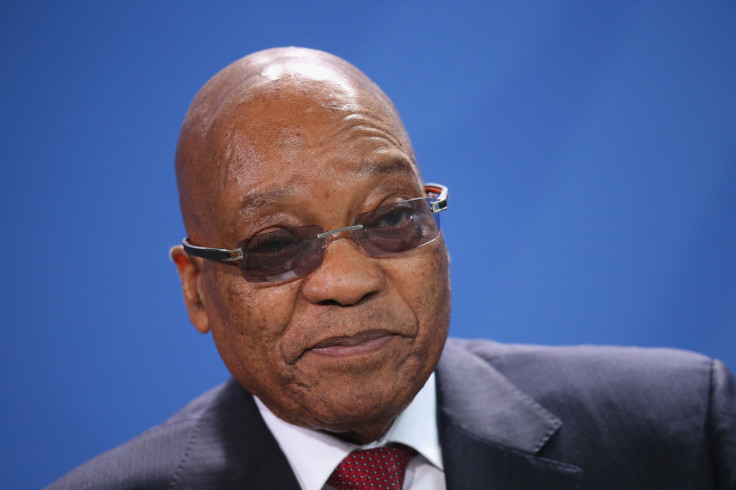South African President Zuma To Visit Iran With Eyes On Tehran’s Oil

South African President Jacob Zuma is scheduled to visit Iran Sunday and Monday next week to “strengthen bilateral relations between the two countries,” the presidency said in a statement Monday obtained by Reuters. Zuma’s trip comes at a time when South Africa is facing an economic crisis and is eyeing opportunities to bolster cooperation with Iran in the energy sector.
Zuma’s deputy, Vice President Cyril Ramaphosa, traveled to Iran’s capital of Tehran in November to explore opportunities for cooperation in “trade and investment, energy, agriculture, education and skills development,” the presidency said in a statement at the time. Ramaphosa also toured a factory of Iran’s leading power generation industry, Mapna Group. South Africa has been looking to resume oil imports from Iran, which was the country’s main supplier until 2012 when Western sanctions on it increased. Saudi Arabia has since overtaken that role.
Zuma plans to build an additional oil refinery that would use Iranian crude to boost its local petroleum supply and reduce its reliance on foreign companies. State-owned PetroSA proposed to construct the new plant on the south coast in Mossel Bay. It would be South Africa’s seventh refinery and the largest on the African continent, which has raised concerns the country would have a local surplus and be forced to increase its exports amid a turbulent market. Crude oil prices have fallen more than 70 percent since June 2014 due to a global energy glut.
“Should another refinery be built, it would mean that the country would have to increase its exports of products, and this would mean a change from the current practice of ensuring that supply catered mainly for local demand,” Shash Rabbipal, chairman at the Cape Town unit of Chevron Corp., the second-largest U.S. energy company, said in a October interview with Bloomberg News.
South Africa’s emerging market economy, which relies on foreign investors to meet its operating and capital financing needs, is grappling with a financial crisis linked to a global commodity glut, cooling demand from China and the U.S. Federal Reserve’s decision to increase interest rates. South Africa’s economic growth is projected to be below 1.5 percent both in 2015 and this year, according to a recent report from the International Monetary Fund. The local rand currency has fallen nearly 27 percent against the U.S. dollar in the past year and more than 50 percent since 2009 as investors have sold risky assets in anticipation of increased rates.
The rand, which is tied to the value of South Africa's commodity exports, began to weaken this year when China missed its economic growth target. Beijing has been South Africa’s largest trading partner since 2010. But South African producers of gold, wine and other goods who depend on their Chinese trading partners are now suffering from lower import demand.
© Copyright IBTimes 2024. All rights reserved.











